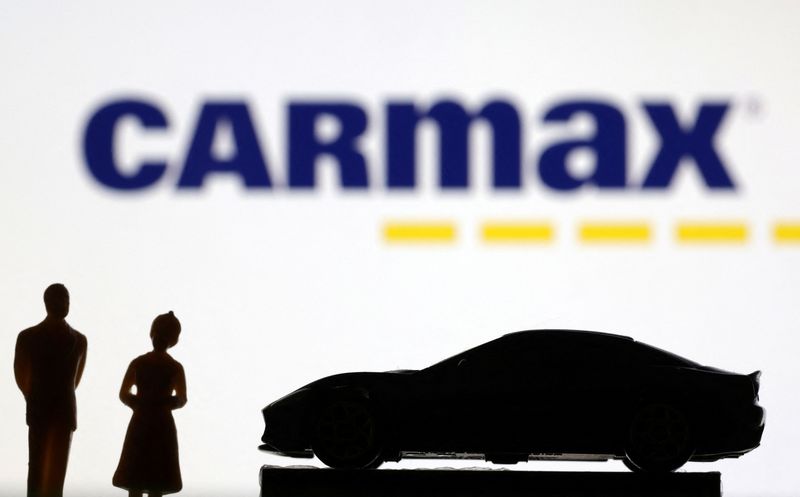(Reuters) -CarMax reported a 33% fall in first-quarter profit on Friday, as lower margins from vehicles sold continued to impact the used-vehicle industry.
Pre-owned vehicle retailers have had a bumpy ride with profitability worsening over the last few years as new vehicle availability improved.
Better offers and trade-in deals on new vehicles have also kept potential buyers at bay from considering used vehicles.
Used vehicle dealers have been forced to sell cars at heavily discounted rates, a stark difference to the pricing power they commanded during the pandemic, when new vehicle supply was skewed.
CarMax (NYSE:KMX) reported a net income of $152.4 million, or 97 cents per share, in the quarter ended May 31, down from $228.3 million, or $1.44, per share a year ago.
Analysts expected a profit of 94 cents per share, according to LSEG data.
For the reported quarter, overall revenue came in at $7.11 billion, falling short of analysts' estimates of $7.21 billion.
Used vehicle revenue fell 5.4% to $5.68 billion.
"Vehicle affordability challenges continued to impact our first quarter (retail) unit sales performance, with ongoing headwinds due to widespread inflationary pressures, higher interest rates, and tightened lending standards," the company said in a statement.
Analysts and industry experts have said that affordability concerns among consumers continue to persist, further exacerbated by limited supply of affordable vehicles.
CarMax has employed a host of cost cuts, including slashing marketing and capital expenditures, over the past few years to help fend off a hit to margins.
Used-vehicle retail sales improved in May from a month earlier, rising to the highest so far this year, according to data from Cox Automotive.

Cox said that retail used-vehicle prices have been consistently lower through the first five months of 2024 compared with a year earlier.
CarMax shares shares slipped in and out of positive territory in premarket trading.